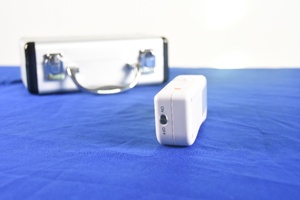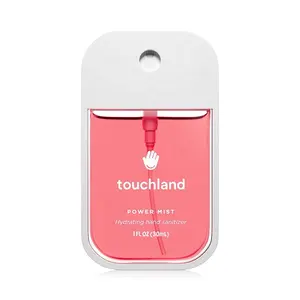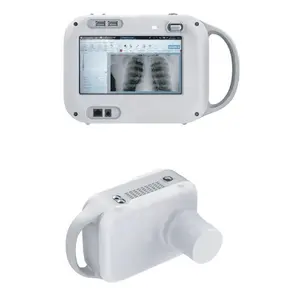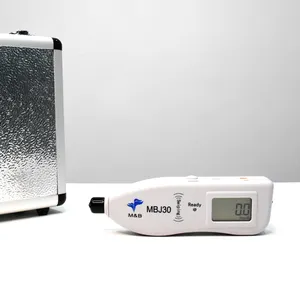Popular in your industry



























































Related Searches:




























































































































Top categories
About mbj20 jaundice detector
What is jaundice Detector Mbj20
Jaundice Detector MBJ20 is an innovative medical device designed for the early detection of jaundice, a condition characterized by yellowing of the skin and eyes, often seen in newborns but also in adults. Jaundice can be an indicator of liver disease, hemolytic disorders, or other underlying health issues and is diagnosed through visual inspection of the skin and blood tests that measure bilirubin levels in the blood. The Jaundice Detector MBJ20 offers a non-invasive alternative for screening jaundice in patients of all ages.
The principles of how the Jaundice Detector MBJ20 works are grounded in its use of reflectance spectrophmetry technology, which measures the reflectance of light at specific wavelengths to determine the concentration of bilirubin in the blood. The device emits light onto the skin's surface and measures the amount of light that is reflected back. Based on the known principles of light absorption by different substances, particularly at varying bilirubin levels, the device can estimate the concentration of bilirubin in the blood. This method is particularly useful for neonatal jaundice screening, where a small portability is essential.
The Jaundice Detector MBJ20 is designed with simplicity and accuracy in mind. The compact device is intended for use by healthcare professionals in settings such as hospitals, clinics, and home care environments. With its intuitive user interface, the device allows for quick and reliable testing, making it an essential tool for managing patients with jaundice.
Types of Jaundice Detector MBJ20
Jaundice detectors come in various forms to cater to different clinical needs and settings. Here’s an overview of some common types:
-
Transcutaneous Jaundice Meters: These portable devices are non-invasive and can quickly assess bilirubin levels through the skin. They are particularly useful in neonatal care to monitor jaundice without the need for a blood test.
-
Handheld Jaundice Detectors: Similar to transcutaneous models but often more compact, these devices are suitable for home use or for healthcare professionals who need to monitor bilirubin levels on the go.
-
Benchtop Jaundice Detectors: Ideal for hospital settings, these larger units provide precise bilirubin measurements and may include additional functions such as assessing the risk of kernicterus, which can be crucial in managing neonatal jaundice.
-
Bilirubin Lights: These lights are used to treat jaundice by helping to convert bilirubin into a more water-soluble form that can be excreted through urine. They're often used in conjunction with other treatments.
How to choose jaundice Detector Mbj20
Choosing the right jaundice detector for your business often hinges on understanding your specific needs and the characteristics of your clientele. Consider the following:
-
Accuracy: Ensure that the device has been validated against laboratory measurements. A high level of accuracy is essential for making informed decisions about patient care.
-
Age Range: If your practice involves pediatric patients, select a detector that is suitable for all ages. Devices designed for adults may not provide the necessary sensitivity for younger patients.
-
Portability: For businesses that provide care outside of a traditional medical setting, such as home healthcare or emergency medical services, a portable device might be more beneficial.
-
Additional Features: Depending on your workflow, you may need a device that offers continuous monitoring or one that provides clear visual feedback on bilirubin levels. Some devices also offer built-in printer functionality for easy record-keeping.
-
Safety Standards: Ensure that the device meets relevant safety standards to protect both patients and healthcare workers.
By considering these factors in relation to your business needs and client demographics, you can make an informed decision about which jaundice detector is most appropriate for your professional setting.
About jaundice Detector Mbj20 on Alibaba.com
For businesses seeking reliable jaundice detection devices, Alibaba.com offers an expansive selection from verified suppliers around the globe. These devices cater to an array of professional needs—from clinical settings requiring high-precision results to fieldwork demanding robust equipment. On Alibaba.com, businesses can find products designed for efficiency and accuracy, whether it's a hand-held meter for spot-checks or an advanced photometer for extensive data collection.
Alibaba.com's platform simplifies international trade by providing intuitive search capabilities that help buyers identify products meeting specific criteria such as colorimetry or bilirubin levels. With added features like filtering by class, certification, and after-sale service options, businesses can streamline their procurement process.
Moreover, Alibaba.com stands out as a marketplace due to its commitment to security through services like Trade Assurance which protects payments until delivery completion. This reflects their dedication to fostering trust within their trading community. By choosing Alibaba.com for sourcing jaundice detectors, businesses can leverage a vast network of suppliers offering a wide variety of devices while benefiting from a user-friendly platform designed to facilitate smooth transactions across over 190 countries worldwide.
Common FAQs for jaundice Detector Mbj20
What is a Jaundice Detector and how is it used?
A Jaundice Detector is a medical device used to assess the level of bilirubin in a patient's blood, which can be indicative of liver function and severity of jaundice or liver dysfunction.
What are the key considerations when choosing a Jaundice Detector for my business?
When choosing a Jaundice Detector, consider the device's accuracy, ease of use, data storage capability, portability (if needed), and whether it meets the specific clinical requirements of your business.
How does a Jaundice Detector work?
A Jaundice Detector typically uses a non-invasive method to measure skin reflectance, which can be an indicator of the levels of bilirubin in the skin and blood.
Are there different types of Jaundice Detectors available?
Yes, there are various types of Jaundice Detectors, including transcutaneous, handheld, and portable devices, each suited for different clinical settings and patient needs.
What should I look for in terms of quality assurance when purchasing a Jaundice Detector?
Look for quality assurance certifications or standards compliance, which can vary by region, industry, or medical application to ensure the device meets regulatory requirements and performs to expected standards.
How do I know if a Jaundice Detector is suitable for use in a clinical setting?
Ensure that the device is classified as a medical device and meets the necessary safety and performance standards for clinical use. This information is typically available in the product specifications or from the supplier.
Can Jaundice Detectors be used for screening purposes?
Yes, certain models of Jaundice Detectors are designed for screening purposes and can rapidly assess individuals for signs of jaundice, which is crucial for early diagnosis and treatment.
Are there portable Jaundice Detectors that can be used outside of a clinical environment?
Yes, there are portable models such as the MBJ20, which are designed for easy transportation and use outside clinical settings, such as during home visits or when moving between health facilities.
Do I need special training to operate a Jaundice Detector?
While most Jaundice Detectors are user-friendly, it is important for healthcare professionals to understand how to interpret the results and use the device correctly. Training may be beneficial to ensure accurate readings and proper use.
Can I customize a Jaundice Detector for my business needs?
Many suppliers offer customization options for their Jaundice Detectors, such as branding and specific operational requirements. It's essential to discuss these needs directly with suppliers.
What after-sale services should I consider when purchasing a Jaundice Detector?
Consider after-sale services such as onsite training, free spare parts, or onsite installation services that may be offered by suppliers to ensure proper use and maintenance of the device.



















































